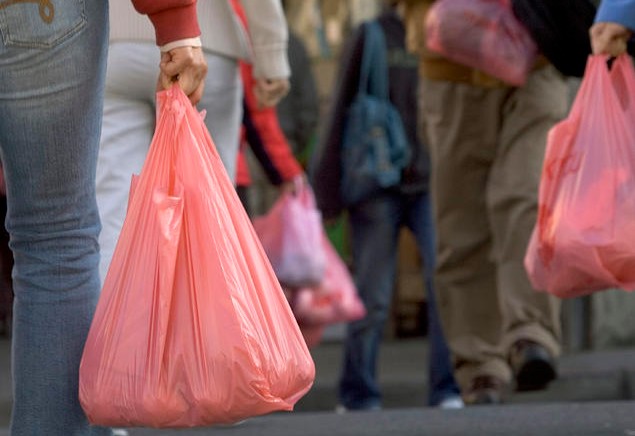In April this year the EU passed a new piece of legislation aiming to halve use of thin plastic bags in the EU by 2017, compared to 2010 levels, with a further reduction target of 80% by 2019. In implementing the directive, member states are given the flexibility to decide whether to ban, tax or charge for thin plastic bags in order to achieve the targets.
The law only applies to thin, mostly single-use bags, with the ticker, sturdier plastic bags, which shops normally charge for, not currently being affected. However, a bone of contention at the moment is the use of Oxo-biodegradable bags. The issue revolves around their real versus claimed biodegradability, and therefore environmental impact, and whether they should be part of the accepted mix or just banned outright.
Oxo-biodegradable is used to describe bags made of a type of plastic containing specific oxidizing additives which cause it to fragment into tiny particles. The term however suggests that such plastic bio-degrades, when in reality it just breaks down into smaller fragments which still remain in the environment, albeit invisibly.
Some member states, notably Italy, want to see their outright ban, while others, notably Britain, are not so keen. Here such bags are marketed by UK Symphony Environmental, which says they are safe. The Oxo-biodegradable Plastics Association (OPA), speaking on behalf of Symphony Environmental, claims that a proposed ban on Oxo-biodegradable plastic is the result of lobbying by an Italian company with links to the Italian government, and that such a company has a completely bio-degradable alternative on the market, which they are keen to promote.
Read more: California Bans Plastic Bags – First State to Do So
Clearly many interests are at stake here. It remains to be seen whether science will prevail in the negotiations.
In the meantime, some member states have already been proactive on this plastic bag matter for some time. In Ireland a 15 cent tax on plastic bags was introduced in 2002, and saw plastic bag usage decrease from an estimated 328 to 21 per head almost overnight. The current levy stands at 22 cent per bag, and was introduced in 2007 to bring usage down again after it had raised to 31 bags per head.
Denmark introduced a tax in 2003 on retailers giving out plastic bags, to encourage their charging customers for it, and promote reusable bags. At four bags per head per year as of 2014 (versus 466 in Portugal, Slovakia and Poland) Denmark has the lowest per head plastic bag use compared to any other country in Europe.
France also recently followed suit, with a proposed ban of all thin, single use non-biodegradable plastic bags from supermarkets from 2016, and a proposed use of thicker reusable or paper bags being debated in Parliament this year. The measure is an evolution from a previous voluntary scheme that saw the number of plastic bags distributed by supermarkets drop from 10.5bn to 700m between 2002 and 2011. If approved, the legislation could go even further with a ban on disposable plastic cutlery and crockery also, by 2020.
By Annalisa Dorigo
